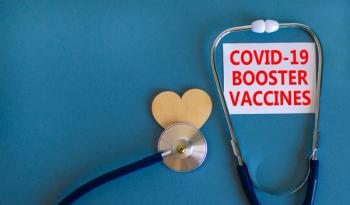
Paxlovid FDA Approved as First Oral Antiviral COVID-19 Treatment in Adults
Paxlovid will continue to be accessible at no charge for adults and eligible children ages 12 to 18 who are not covered by the approval.
Paxlovid is now the first oral antiviral pill to treat COVID-19 in adults as of May 25. The U.S. Food and Drug Administration (FDA) approved the oral Pfizer drug (nirmatrelvir tablets and ritonavir tablets) for treatment of mild-to-moderate COVID, including hospitalization or death.
Though Paxlovid is the first oral antiviral pill, it is the fourth drug approved by the FDA to treat COVID in adults. It has been available since December 2021 under Emergency Use Authorization. Paxlovid will continue to be accessible at no charge for adults and eligible children ages 12 to 18 who are not covered by the approval, according to a release by the FDA.
A spokesperson from Pfizer told Formulary Watch they anticipate making Paxlovid commercially available later this year, the timing of which is dependent on a number of factors, including existing USG supply of Paxlovid.
Patrizia Cavazzoni, M.D., director for the FDA’s Center for Drug Evaluation and Research shared in the release that the approval demonstrates "Paxlovid has met the agency’s rigorous standards for safety and effectiveness, and that it remains an important treatment option for people at high risk for progression to severe COVID-19, including those with prior immunity. The FDA remains committed to working with sponsors to facilitate the development of new prevention and treatment options for COVID-19.”
The FDA requires substantial evidence of effectiveness and safetines in a new drug prior of approval. The approval of Paxlovid was based off of results from a EPIC-HR clinical trial where non-hospitalized symptomatic adults with COVID-19 were observed for 28 days. These patients had not received a COVID-19 vaccine and had not been previously infected with COVID-19.
In the analysis, 977 patients received Paxlovid and 989 patients received a placebo. Among these patients, 0.9% who received Paxlovid were hospitalized due to COVID-19 or died from any cause during 28 days of follow-up compared to 6.5% of the patients who received the placebo.
In addition, patients in the analysis who were antibody positive at trial enrollment, had a 0.2% risk of COVID-19-related hospitalization or death from any cause during 28 days of follow-up among the 490 patients treated with Paxlovid compared with 1.7% of the 479 patients receiving placebo.
Paxlovid has shown a track-record of being effective, according to a report published by the National Institues of Health in January.
An analysis shared in the report examined medical records from almost 45,000 people diagnosed with COVID-19. The study covered people seen during the first six months of 2022 — most being affected with the Omicron variant. Researchers identified about 12,500 people who received a prescription for Paxlovid and just over 32,000 who did not. Overall, rates of hospitalization and death from COVID-19 were low, less than 1%, during the period studied. However, people who received Paxlovid still had a 44% reduced risk of hospitalization or death from COVID-19. People who weren’t vaccinated had an 81% lower risk of hospitalization or death if they received Paxlovid.
Newsletter
Get the latest industry news, event updates, and more from Managed healthcare Executive.

























